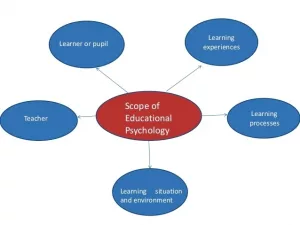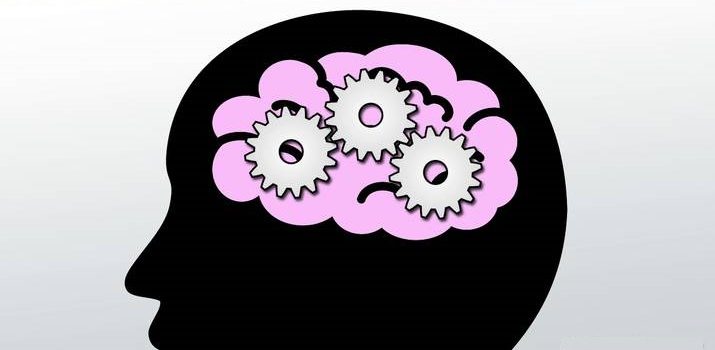What is educational psychology all about?
Educational psychology involves the study of how people learn. It includes teaching methods, instructional processes, and individual differences in learning that can either help learners or makes things challenging for them. The goal of this field of psychology is to understand how people learn and retain new information. It also studies how they can be helped in this process, and what can make the process easy for them.
As a key part of psychology, educational psychology is not just about the learning process during early childhood and adolescence but also includes the social, emotional, and cognitive processes that are involved in learning throughout the entire lifespan. The interesting thing is that it incorporates several other disciplines too, such as developmental psychology, behavioral psychology, and cognitive psychology.
Why knowing about educational psychology in education is important?
As with any other area of psychology, researchers working in educational psychology take on different perspectives when they are considering and working out a problem. These perspectives focus on specific factors that influence how a person learns, including learned behaviors, cognition, experiences, and more.
Major perspectives in educational psychology include:
The behavioral perspective
The behavioral perspective suggests that all behaviors are acquired through conditioning. Psychologists who take this perspective rely confidently on the principles of operant conditioning to explain how learning takes place. The teachers might reward learning by giving students tokens that are exchanged for desirable items such as candy or toys. The behavioral perspective operates on the theory that students will learn when rewarded for “good” behavior and punished for “bad” behavior.
It has been observed that such methods are beneficial in some cases but not all. The behavioral approach has been criticized for failing to account for things such as attitudes, emotions, and intrinsic motivations for learning and questions the quality of learning that relies on rewards.
The developmental perspective
This perspective focuses on how children acquire new skills and knowledge as they develop. Monitoring how children grow intellectually can help the educators to understand what they think at different stages of development. Educational psychologists make an effect to find out what children are capable of intellectually at each point of their growth.
With this knowledge, they can come up with better instructional methods and materials that help certain age groups develop and acquire skills that assist them in later stages.

The cognitive perspective
In the past few years, this approach has become very popular. Cheap essay writing service office has opinion that the main reason behind this is the way it works and accounts for how things like memories, beliefs, emotions, and motivations play a crucial role in the learning process. This theory supports the idea that a person learns as a result of their own motivation, not as a result of external rewards.
Cognitive psychology aims to understand how people think, learn, remember, and process information and how it helps them in their life. Educational psychologists who support the cognitive perspective are interested in understanding how children become motivated to learn, how they remember the things that they learn, and how they solve problems, among other things.
The constructivist approach
It is the latest perspective that is becoming popular among educational psychologists. It focuses on how we actively construct our knowledge of the world. It tends to account more for the social and cultural influences that impact how we learn.
People in favor of this approach believe that what a person already knows is the biggest influence on how they learn new information. It means that new knowledge can only be added on to and understood in terms of existing knowledge.
The experiential perspective
This perspective focuses on a person’s life experience and how they help to influence and understand new information. This method is similar to constructivist and cognitive perspectives as it takes into consideration the experiences, thoughts, and feelings of the learner.
This method allows learners to find personal meaning in what they are getting to know instead of feeling that the information does not apply to them.
Importance of educational psychology
Knowing about educational psychology is very important as it can help educators support the learning process of their students. It also goes on to show how important education and educational psychology are for each other and how they can aid the learning process, making it easy and interesting for the learners.
How educational psychology helps leaners
- Educational psychology focuses on various factors that have a significant impact on students. These factors may include home environment, social groupings, peer groups, emotional sentiments of the learners as well as mental hygiene along with other crucial factors. Various methods are used by psychologists to collect data about the learners such as their mentality and behavior and how it manifests.
- Educational psychology plays a crucial role in the learning process. It investigates how much information and knowledge should be transferred to the learners and what methods should be used for that purpose.
- Psychologists are also keen to determine this based on the learners’ age, social background as well as their past achievements and future plans.
- Educational psychologists also study situational factors. They keep an eye on how an environment like a classroom or homeschool can be managed and discipline can be maintained to give students a conducive environment for learning. Besides it, it studies various Audio Video Aids and their role in facilitating the teaching-learning process.
- Educational psychology helps in curriculum development. They have the right ideas on what kind of curriculum should be made and what type of content should be given to teachers to transfer to the young learners that keep them on the right track.
- Educational psychology provides educators with different kinds of evaluation techniques that help in the successful evaluation of learners. Teachers, as well as parents, can check how well the learners are progressing, how concepts are transferred, and if any change is required
Knowledge about educational psychology is essential as it helps the teachers and prospective teachers to improve the efficiency of the learning process at different conditions and levels. It plays a significant role in helping teachers to plan, organize and evaluate teaching and learning activities in schools.
